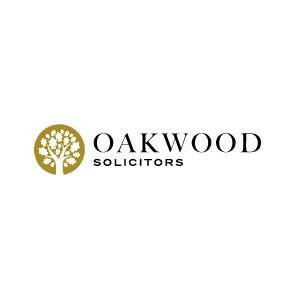Best Bankruptcy & Debt Lawyers in Leeds
Share your needs with us, get contacted by law firms.
Free. Takes 2 min.
List of the best lawyers in Leeds, United Kingdom
United Kingdom Bankruptcy & Debt Legal Articles
Browse our 1 legal article about Bankruptcy & Debt in United Kingdom written by expert lawyers.
- Debt Collectors in the UK: Stop Harassment and Verify Debt
- - Debt collectors must follow FCA rules. You can set contact limits, insist on writing only, and complain if they ignore this. Aggressive or frequent contact can be harassment under UK law. - Verify every debt before paying. Use a prove-it letter and, for credit agreements, a Consumer Credit Act... Read more →
About Bankruptcy & Debt Law in Leeds, United Kingdom
Bankruptcy & Debt Laws in the United Kingdom, including Leeds, provide legal frameworks for individuals and businesses who are unable to repay their debts. The scope of these laws includes individual voluntary arrangements (IVAs), bankruptcy, debt relief orders (DROs), and other insolvency solutions. Note that bankruptcy in the UK is different from the US in terms of its process, regulations and implications. Therefore, it is critical to understand these laws and seek professional legal advice when dealing with Bankruptcy & Debt matters.
Why You May Need a Lawyer
Legal advice is essential in bankruptcy and debt-related situations, which often involve complex legal processes and regulations. A lawyer can provide the following support: help you to understand the implications of bankruptcy, assist you in making an IVA for debt repayment, represent you in court, prevent any unfair treatment from creditors, guide you through the property repossession process, and finally, assist in bankruptcy discharge and debt recovery process.
Local Laws Overview
The Insolvency Act of 1986 is the primary statute governing bankruptcy and debt in Leeds and the broader United Kingdom. Debtors may voluntarily declare bankruptcy or can be forced into bankruptcy by a debt enforcement action. UK laws also provide for DROs, an option for those with small amounts of assets and debts. Furthermore, there's the 'Enterprise Act 2002', which has provisions reducing the period of bankruptcy from three years to one year. For partnerships and companies, options include administration, liquidation, and company voluntary arrangements (CVAs).
Frequently Asked Questions
What is the difference between bankruptcy and a debt relief order?
Bankruptcy is a legal status for people who are unable to repay their debts, whereas a debt relief order (DRO) is an alternative to bankruptcy for people who have a low income, aren't homeowners, and have debts under a certain amount.
What are the consequences of being declared bankrupt?
Bankruptcy can have several effects, including restrictions on your financial activities, potential loss of assets, negative impacts on your credit rating, and potential implications for certain jobs.
What is an IVA?
An Individual Voluntary Arrangement (IVA) is a formal agreement between you and your creditors to repay your debts over a specific period.
Who declares a person or business bankrupt?
Either debtors themselves or their creditors can initiate the bankruptcy process. However, a court has to approve the bankruptcy order.
What is a CVA?
A Company Voluntary Arrangement (CVA) is an agreement that allows a financially troubled company to repay its creditors over a fixed period while continuing to trade.
Additional Resources
The UK Government provides comprehensive information on bankruptcy and debt solutions on their official website. You can also contact the National Debtline, a free, independent helpline that provides advice and resources. The Insolvency Service, an agency of the UK Government, can also be helpful. It's also recommended to consult with legal professionals for personalised advice.
Next Steps
If you find yourself needing legal assistance with bankruptcy or debt issues, it is highly advisable to consult with a legal professional specialising in this area. They can provide personalised advice tailored to your situation, guide you through the process, protect your rights and interests, and help you make informed decisions about your financial future.
Lawzana helps you find the best lawyers and law firms in Leeds through a curated and pre-screened list of qualified legal professionals. Our platform offers rankings and detailed profiles of attorneys and law firms, allowing you to compare based on practice areas, including Bankruptcy & Debt, experience, and client feedback.
Each profile includes a description of the firm's areas of practice, client reviews, team members and partners, year of establishment, spoken languages, office locations, contact information, social media presence, and any published articles or resources. Most firms on our platform speak English and are experienced in both local and international legal matters.
Get a quote from top-rated law firms in Leeds, United Kingdom — quickly, securely, and without unnecessary hassle.
Disclaimer:
The information provided on this page is for general informational purposes only and does not constitute legal advice. While we strive to ensure the accuracy and relevance of the content, legal information may change over time, and interpretations of the law can vary. You should always consult with a qualified legal professional for advice specific to your situation.
We disclaim all liability for actions taken or not taken based on the content of this page. If you believe any information is incorrect or outdated, please contact us, and we will review and update it where appropriate.
Browse bankruptcy & debt law firms by service in Leeds, United Kingdom
Leeds, United Kingdom Attorneys in related practice areas.










